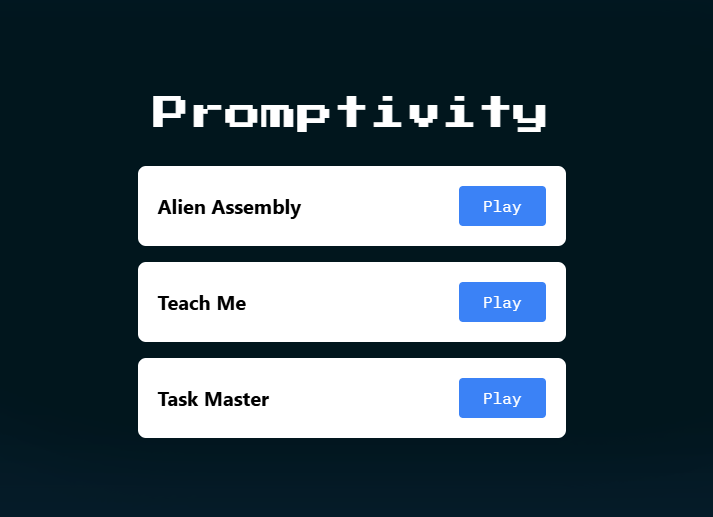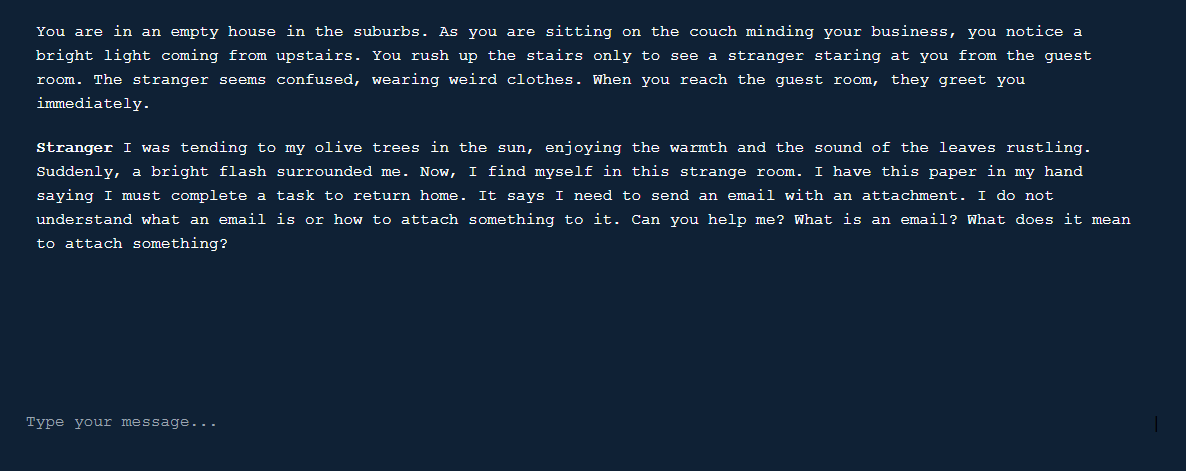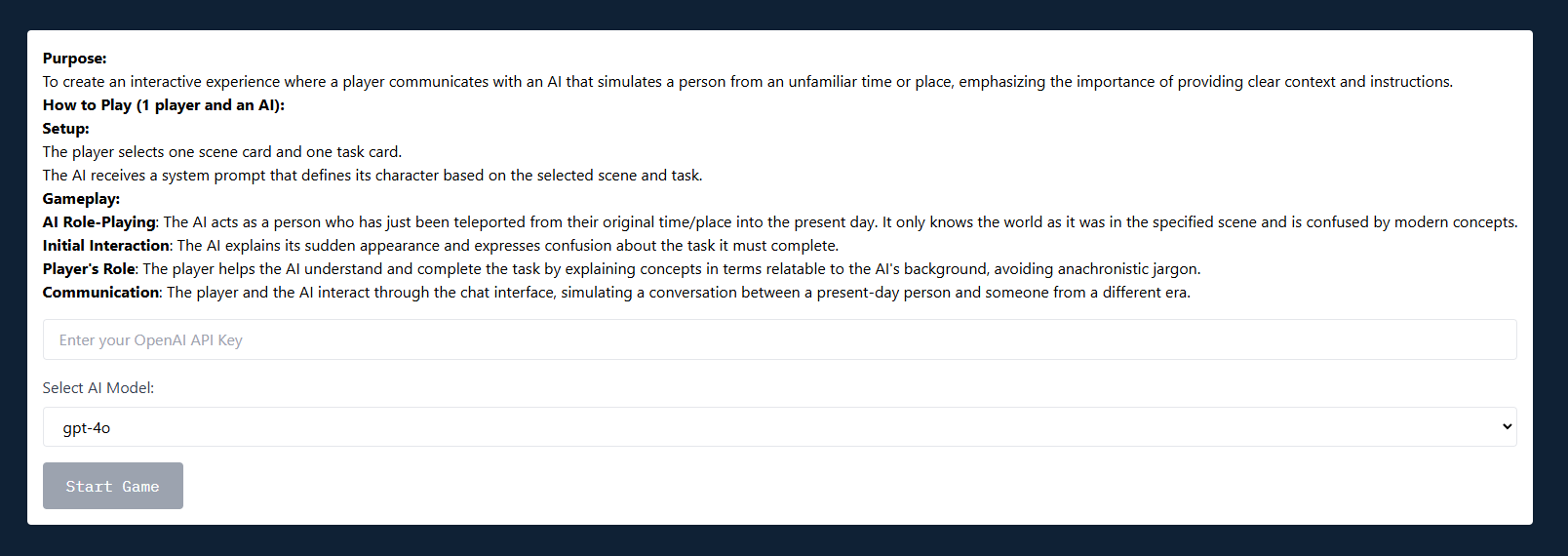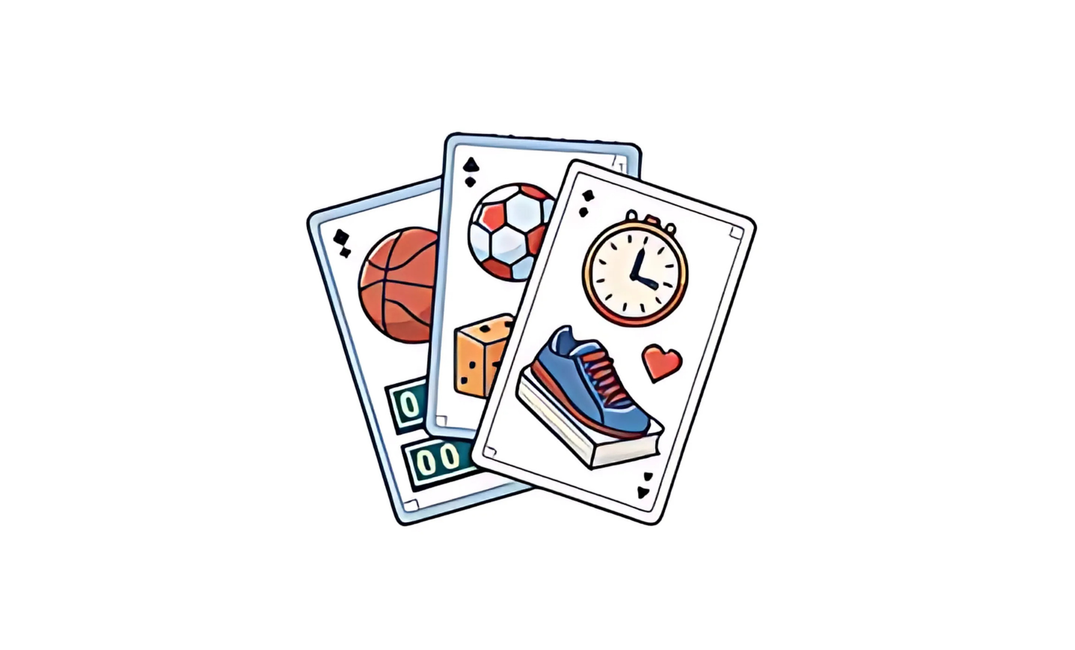“I get it now. Talking to an LLM is like talking to a 6 year old who knows a lot of things.”
As adults, we often lose childlike wonder. We develop a ‘thousand-mile stare’ that helps us survive the routine. We forget that there’s magic right in front of us, waiting to be noticed.
Earlier this week, I ran a full-day AI workshop. Truthfully, I’ve never cared for workshops—they’re often dull and mechanical. People say learning requires struggle, but I disagree. I wanted to show that it can be exhilarating, playful, and deeply memorable.
I didn’t design a workshop for a specific learning outcome.
I designed one for play
Disclaimer: Small bits of the story, including the names were changed. You either know the story or the people but never both, unless you were there.
Communicating with Aliens
Tom is in his 40s, is in a senior management role at the company. He works in a very dry, knowledge intensive field that involves a lot of compliance work. I cannot even fathom how we makes it work. I would hate it.
He was a bit hesitant at the beginning of the event. Especially when I told everyone that instead of teaching them about prompt engineering, we would play games.
I explained:
My mission for this workshop is to activate your inner child. Make them come forward and recognize the magic you have access to. Because only through play you will learn how to make AI work for you, specifically.
Introducing Promptivity
I designed a three part game for this event that helps you learn how to communicate with an alien. Yep, you read that right, an alien.

Treating ChatGPT like someone who just landed from Alpha Centauri makes more sense than treating it like a human.
Why all this talk about aliens? Because communicating with an LLM isn’t like talking to a human—it’s more like guiding an extraterrestrial intelligence that has a huge vocabulary but no shared cultural context. By practicing with playful, alien-themed exercises, you learn how to explain concepts on your model’s terms.
I guess you could say that prompting LLMs is basically a subset of “linguistic xenoanthropology”. (I’m not even sure this exists outside the realm of Star Trek).
The only difference is that this specific intelligence is very much terrestrial.
The three games I had my participants play helped them ease into this mindset.
Game #1: Alien Assembly
The first game was the icebreaker. You should’ve seen Tom’s eyes when I got the Play-Doh out of my bag and explained to a room full of adults (some of them wearing suits) that they would be building stuff with a Play-Doh for the next few minutes.

The game is played as follows:
There are two players: an Instructor and an Alien. The Instructor draws a card with an everyday object on it. It can be anything, like a clock or a book. The Instructor will instruct the Alien to build a replica of the object out of Play Doh in five minutes without explicitly telling what they’re building.
The Alien must intentionally misinterpret the instructions as much as possible.
The game is really simple, yet effective. When I asked some of the participants how they were doing, one of the instructors said:
“It’s not easy, because the Alien purposefully does the opposite of what I’m asking for.”
To which their Alien partner replied: “I’m really not, but I don’t understand what you want me to do.“
After 3 minutes of torture, the Instructor found a simple solution: If the Alien does the exact opposite of what he wants, he would explicitly ask for the opposite things to be done to get what he wants.
They ended up building a hilariously looking clock.
Game #2: Teach Me
The second game is a bit more challenging now. Instead of building things, we need to explain how to do something.
Again, don’t think of very complicated things. It’s simple, like how to tie a shoelace or how to brush your teeth.
However, this time, you have Constraints.

Explaining how to fold a shirt is not very difficult. Explaining how to do it when the other person doesn’t understand the concept of clothing, body parts or directions suddenly makes this task infinitely more challenging.
At this point, they started getting it. They started asking the Aliens questions. Realizing that since the other person doesn’t understand the concept of directions, they need to make things more explicit in a way that connects to the other person’s understanding.
Then we went on to the third game:
Game #3: Task Master
This was the moment when we shifted from imaginary aliens to a real one: the LLM.
With their new communication skills, participants now had to help a time-displaced character to understand modern tasks, like sending an email. This scenario tested their ability to ‘translate’ modern concepts into an alien frame of reference—exactly like prompting an LLM effectively.
This requires zero prompt engineering knowledge. It only requires effective and purposeful communication.
For this I created a short text-based adventure game. It begins with a really simple scene:
You are in an empty house in the suburbs. As you are sitting on the couch minding your business, you notice a bright light coming from upstairs. You rush up the stairs only to see a stranger staring at you from the guest room. The stranger seems confused, wearing weird clothes. When you reach the guest room, they greet you immediately.
Then you immediately get a message:

In this example, our stranger was teleported here from ancient Greece. He found a piece of paper in his pocket that tells him to send an email with an attachment if he wants to go home. Naturally, none of these things existed in ancient Greece.
It’s your job to help him understand to complete the game. The game uses your own API key and you can select different models too.

You can try it out yourself here by using your own OpenAI API key
You can also find the full code for Promptivity (including the game cards) here
Developer Log as of 13th December, 2024:
I didn’t have much time to build it so it’s a very raw prototype with lots of bugs and there’s no clear end state for the game yet. I didn’t need it on the workshop, because I just had people decide if they’re now done.
Learn by Play
After witnessing my participants rediscover curiosity, I’m convinced: we learn best through play, not through stress or struggle. When we treat learning like a game, the ‘magic’ returns—people feel safe exploring, asking questions, and making mistakes.
Research from early childhood education shows that play-based learning leads to deeper understanding and long-term retention. Why should that stop when we grow up? If we want to future-proof our skills—whether it’s prompting an LLM or mastering any new technology—we should embrace our inner child and learn to play once again.
I really enjoyed making these games. If you have any suggestions on how to improve them or develop them, don’t hesitate to reply or comment!


